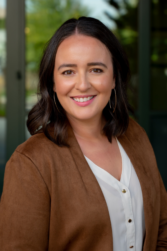Saving or Investing: How to Grow Your Money Wisely

Authored by: Adelae Winters, Financial Advisor
In recent years, as we have experienced a rapidly changing interest rate environment, our general feeling toward cash on hand has adjusted. For the time being, we have the opportunity to earn significant interest on our cash holdings, which has led many investors to fatten their cash coffers. While this strategy is certainly more attractive now than just a couple of years ago, I want to encourage you to consider a balance between cash savings and long-term investments.
High-yield savings accounts have gained popularity, largely due to their attractive annual percentage rates (APRs) of just under 5%. This is particularly appealing in light of the US inflation rate of 3.4%1. In a world where cost of goods and services is steadily increasing, high-yield savings accounts offer a way to preserve and even enhance one’s purchasing power. Certificates of Deposits (CDs) and US Treasuries have also become more attractive with similar yields, although significantly less liquidity than a high-yield savings account can provide.
The benefit to a CD or Treasury over a high yield savings account is reduced interest rate risk: as soon as interest rates are lowered, the rates paid by a high yield savings account also decreases. In contrast, a CD or Treasury locks in the current rate for a longer period of time – such as 6 or 12 months – the catch is that you can’t access the cash until the maturity date without penalties and/or loss of interest, so you’ll want to ensure you have ample liquid cash available in your high yield savings in addition to any CDs or Treasuries that you purchase.
Even when it comes to cash, it is essential to establish a clear financial plan. To start, I encourage you to assess your financial goals. This involves understanding your short-term and long-term objectives, such as saving for a vacation or a down payment on a house in the short term and planning for retirement or your child’s education in the long term. It also involves evaluating your risk tolerance, anticipating future expenses, assessing various revenue sources, and considering your cash flow needs.
It’s important to note the key differences between knowing when to save and when to invest.
Pros and Cons of Saving vs. Investing. The main difference between saving and investing is that savings are generally used for short-term needs, while investments are typically used for long-term financial goals. Savings are liquid assets, such as cash or cash equivalents. Investments may include stocks, bonds, mutual funds, real estate, commodities, and other securities—assets that have the potential to increase in value over time.
When Should You Save? Savings can provide a sense of security by allowing access to your money whenever needed without worrying about losing it due to market fluctuations. They should be used for short-term expenses, such as emergency funds or a down payment on a home. Savings are also important if you’re planning to make a large purchase in the near future.
- Big Purchases and Expenses. Planning for significant expenses like buying a home or a car in the next five years warrants an easily accessible savings account. A higher APR can work in your favor when aiming for a lower interest rate on your home purchase. Additionally, saving for expenses such as insurance, property taxes, and home maintenance is wise. Setting up an automated monthly transfer to your high-yield savings account for these expenses and your emergency fund simplifies the process. However, remember that interest rates on these accounts may fluctuate over time, potentially leading to smaller returns.
When Should You Invest? Investing involves taking more risks than simply setting aside money in a savings account. It also offers the potential for greater returns over time. Generally speaking, investments should be used for long-term financial goals, such as retirement or college tuition funding, since these require more considerable sums of money than what can typically be saved within just a few years. Investing allows for compounding returns, which can help accelerate growth over time with minimal added effort from the investor after the initial setup.
- Investment Accounts. Investment accounts are versatile financial vehicles, allowing you to invest in stocks, bonds, and more. Keep in mind that earnings in these accounts are subject to taxation when you sell assets. Therefore, we recommend working with a financial advisor who can provide tax-intelligent guidance (which means they can help you make investment decisions that are designed to minimize your tax liability) alongside investment expertise. They can also help you diversify your portfolio and make decisions that align with your risk tolerance and goals.
- Retirement Accounts (IRAs, 401(k)s). Individual retirement accounts (IRAs) and 401(k)s are invaluable for retirement savings. These accounts enable you to defer taxes on earnings until your retirement, and many employers offer matching contributions, further boosting your savings potential.
It is important to consider saving and investing when planning your financial strategy because both options have distinct advantages depending on your individual needs and situation. A good rule of thumb is that if you anticipate needing the money within a few years, then opt for safer savings accounts, whereas if you plan on using the money further down the line, then investments may be more suitable given their higher growth potential—but with higher risks as well.
Ultimately, it’s crucial for everyone—especially young adults—to prioritize their long-term financial security by working with a financial advisor who can set up a comprehensive financial plan that includes both saving and investing. For more information, visit our website at cnccpa.com or give us a call at (509) 663-1661, and we’ll begin helping you, your family, or your business today.
Events & Deadlines
Latest Past Events
Community Service Day
Cordell Neher & Company, PLLC 175 E Penny Rd #1, Wenatchee2024 Shred Event
Cordell Neher & Company, PLLC 175 E Penny Rd #1, WenatcheeCNC Newsletter
Subscribe and stay informed on policy changes that could have an impact on you.
Footer Contact
Check the background of your financial professional on FINRA's BrokerCheck®
Privacy & Usage: The information on the Cordell, Neher & Company, PLLC website is provided with the understanding that it should not be substituted, in any way, for consultation with a professional Certified Public Accountant, accountant, tax, legal or other competent advisor. Cordell, Neher & Company, PLLC makes every attempt to ensure that the information contained on their websites are obtained from reliable sources, but is not responsible for any errors and/or omissions or from the results obtained from the use of any information. This site contains links to servers maintained by other organizations. Cordell, Neher & Company, PLLC cannot provide any warranty regarding the accuracy or source of information found on any of these servers, the content of any file the user might use to download from a third-party site, and is not responsibility for the content found on any of these servers or for any links these servers maintain with other servers.
Securities offered through Cetera Wealth Services LLC, member FINRA/SIPC. Advisory Services offered through Cetera Investment Advisers LLC, a registered investment adviser. Cetera is under separate ownership from any other named entity. Home offices at 175 E Penny Rd #1 Wenatchee, WA 98801; phone (509) 663-1661.
Individuals affiliated with this broker/dealer firm are either Registered Representatives who offer only brokerage services and receive transaction-based compensation (commissions), Investment Adviser Representatives who offer only investment advisory services and receive fees based on assets, or both Registered Representatives and Investment Adviser Representatives, who can offer both types of services.
© 2024 Cordell, Neher & Company PLLC • Designed by Pixel to Press











